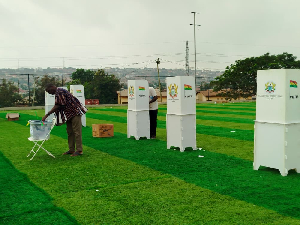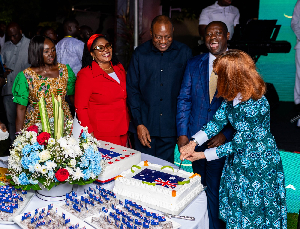Libya’s battered economy took center stage at United Nations-backed talks on ending the conflict, as a blockade that slashed the OPEC nation’s vital oil output entered a fourth week.
The two-day meeting in Cairo is being closely monitored for any sign of a deal to restore output in the North African nation after supporters of eastern commander Khalifa Haftar forced ports to close mid-January, driving production to its lowest since 2011. Imminent large-scale resumption, although unlikely, could add over 1 million barrels per day to the international market, complicating OPEC’s efforts to assess the impact of the coronavirus on demand.
Distribution of oil revenue has been at the heart of the turmoil that’s divided the country, and an immediate breakthrough in Cairo isn’t expected. The OPEC+ alliance, which controls about half of the world’s oil, last week recommended cutting 600,000 barrels of combined production -- a reduction that would be dwarfed by a significant rise of Libyan output.
The talks that started Sunday are the latest in a series of global efforts to end the conflict between the internationally recognized government in Tripoli and Haftar, whose Libyan National Army controls the country’s oil-rich east and south and in April turned its sights to the capital.
That offensive, which has morphed into a proxy war between regional powers, has killed more than 2,000 people and displaced tens of thousands. Both sides have accused the other of breaching a provisional cease-fire agreed in January.
Oil production in Libya, home to Africa’s largest-proven reserves, has tumbled to about 180,000 barrels a day, the lowest level since the 2011 uprising against long-time leader Moammar Qaddafi, from a daily 1.2 million barrels just before the blockade. The state-run National Oil Corp. has declared force majeure on supplies.
Libya has endured major disruptions to its oil exports in recent years as battles and blockades by rival militias have repeatedly hindered efforts to revive production. A deteriorating economy has stoked anger in historically marginalized eastern Libya, where many believe too much wealth is concentrated in the west of the country.
UN Special Representative Ghassan Salame said last week he’d asked eastern Libyan tribal leaders behind the closing of the ports to specify their demands before oil revenue was discussed in Cairo. They have been disputing the “unfair distribution of oil,” he said in Geneva on Thursday.
Libyan daily oil production bottomed out at 45,000 barrels in August 2011 during the NATO-backed campaign that ousted Qaddafi, who’d ruled for four decades.
Africa Business News of Monday, 10 February 2020
Source: reuters.com













